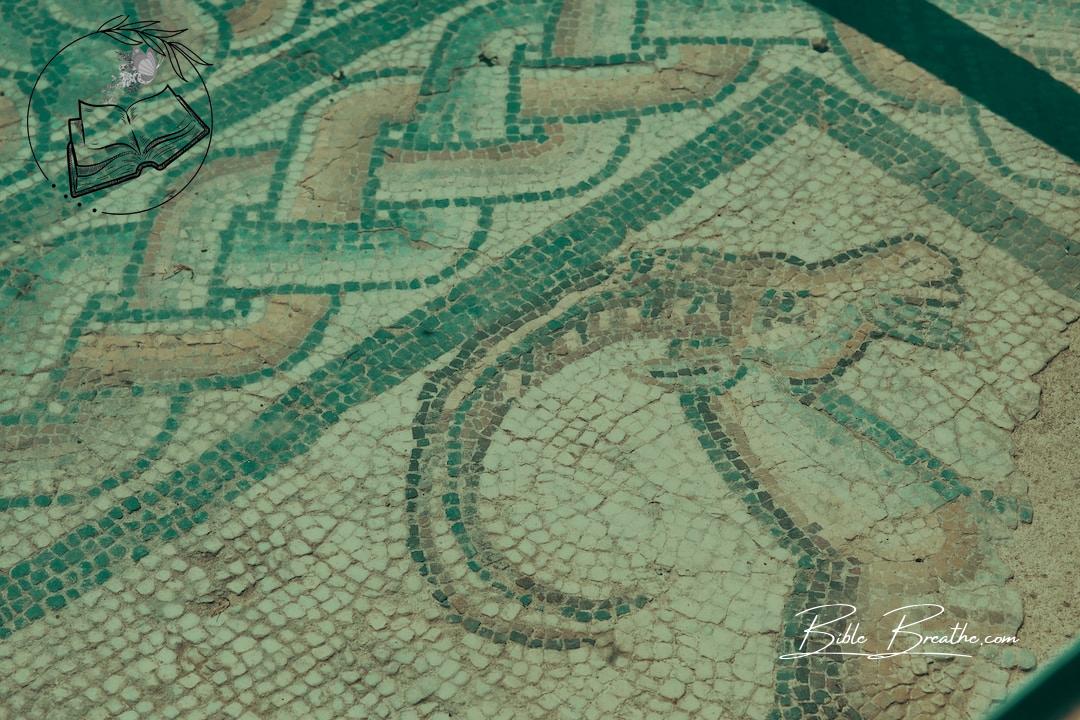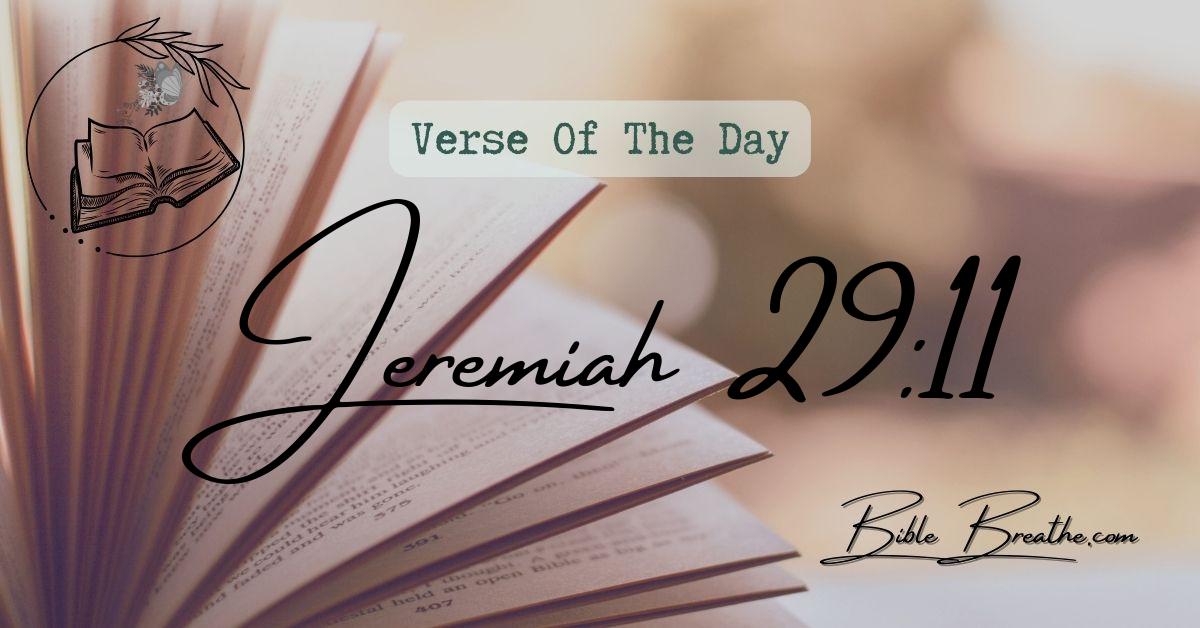Jeremiah 29:11 is a gem that shines brightly from the annals of biblical promises.
Nestled within the book of Jeremiah, this verse provides solace to countless souls, illuminating the timeless message that God has a plan for each of us.
What makes this particular scripture for hope stand out?
It’s the heartening assurance that, even when the clouds of uncertainty loom, God’s intentions for us are always for prosperity, not for harm.
Imagine being lost in a vast forest, with every path seeming identical.
It’s in that moment of utter despair that Jeremiah 29:11 acts as a beacon, its light guiding us back to the main road.
It’s not just about knowing that God has a plan; it’s about deeply feeling that reassurance when doubts try to creep in.
So, as you delve deeper into the Jeremiah 29:11 context, ask yourself this: In a world teeming with unpredictability, isn’t it comforting to know that there’s a divine script, a God’s plan verse, ensuring that everything eventually aligns for our good?
Dive in, and let’s uncover the layers of this age-old promise together.
Key Takeaways
- Jeremiah 29:11 stands as a testament to God’s unwavering commitment to His people, promising a future filled with hope even amidst trying times.
- Delving into its historical context, this verse was a beacon of hope during the Israelites’ Babylonian exile, assuring them of God’s long-term plan and intention to restore them.
- In today’s world, this scripture serves as a reminder that no matter the uncertainties or adversities we face, there’s a divine plan and purpose in play, steering us towards a brighter future.
- Embracing the essence of Jeremiah 29:11 means grounding our decisions, from personal choices to business endeavors, in trust and faith, believing that challenges are but stepping stones to greater destinies.
- As modern believers, applying this verse involves seeking alignment with God’s purpose in every situation, turning to it for strength during hardships, and using it as a compass in our spiritual and everyday journeys.
Verse Presentation
Diving into the rich tapestry of the Bible, we find verses that resonate with our souls, lighting up our paths and whispering God’s promises into our ears.
One such verse, a cornerstone of biblical promises, is from the book of Jeremiah.
Verse of the Day:
“For I know the thoughts that I think toward you, saith the Lord, thoughts of peace, and not of evil, to give you an expected end.” – Jeremiah 29:11, KJV
Basic facts of the verse
| Attribute | Value |
|---|---|
| Book | Jeremiah |
| Chapter | 29 |
| Verse | 11 |
| Christian Bible part | Old Testament |
| KEYWORDs | Thoughts, Peace, Lord, Expected end |
| Topics | God’s plan, Hope, Future |
| Bible Themes | God’s Promises, Divine Guidance |
| People | Jeremiah, Israelites |
| Location | Jerusalem |
Imagine you’re crafting a mosaic, piece by piece.
Each attribute of this verse, from its author to its themes, is like a unique tile in this grand design.
When you step back and gaze upon it, the bigger picture of Jeremiah 29:11 meaning emerges: A declaration of God’s unwavering commitment to His children, a scripture for hope in times when the world seems bleak.
Always remember, no matter where you are in your journey, this God’s plan verse reinforces that He’s intricately designing every moment for our ultimate good.
Jeremiah 29:11 KJV Cross References
These are some Bible verses related to Jeremiah 29:11:
| **Cross Reference Verse (KJV)** | **Verse** |
|---|---|
| Proverbs 16:9 | A man’s heart deviseth his way: but the Lord directeth his steps. |
| Romans 8:28 | And we know that all things work together for good to them that love God, to them who are the called according to his purpose. |
| Ephesians 1:11 | In whom also we have obtained an inheritance, being predestinated according to the purpose of him who worketh all things after the counsel of his own will: |
| Job 23:13 | But he is in one mind, and who can turn him? and what his soul desireth, even that he doeth. |
| Psalm 139:16 | Thine eyes did see my substance, yet being unperfect; and in thy book, all my members were written, which in continuance were fashioned when as yet there was none of them. |
| Isaiah 55:8-9 | For my thoughts are not your thoughts, neither are your ways my ways, saith the Lord. For as the heavens are higher than the earth, so are my ways higher than your ways, and my thoughts than your thoughts. |
| Proverbs 19:21 | There are many devices in a man’s heart; nevertheless, the counsel of the Lord, that shall stand. |
| Romans 9:21 | Hath not the potter power over the clay, of the same lump to make one vessel unto honour, and another unto dishonour? |
| Psalm 40:5 | Many, O Lord my God, are thy wonderful works which thou hast done, and thy thoughts which are to us-ward: they cannot be reckoned up in order unto thee: if I would declare and speak of them, they are more than can be numbered. |
Historical and Cultural Context

Photo modified by BibleBreathe.com. Original photo by Yusuf Dündar on Unsplash
Dive with me into the ancient world of the Bible.
Picture a bustling Jerusalem, where hope seems lost amidst political turmoil and exiles.
This is the world of Jeremiah 29:11.
Nestled in the tapestry of biblical promises, this verse was penned at a tumultuous time in Israel’s history.
As the Israelites faced exile in Babylon, they grappled with despair, yearning for their homeland and divine connection.
Now, why is understanding this backdrop vital?
It’s akin to trying to grasp the emotions of a love letter without knowing the love story behind it.
The Babylonian captivity was not just a casual vacation; it was a time of deep pain, identity crisis, and spiritual questioning.
The societal norms of the time influenced the writing and the interpretation.
In a world dominated by the mighty Babylonians, the weaker nations like Israel were often subjugated and scorned.
But amidst this bleak setting, God sends a message of hope through Jeremiah.
In ancient times, promises from leaders or deities meant the world.
So, when God promises, through the words of Jeremiah, to harbor “thoughts of peace, and not of evil” for His people, it’s monumental.
It’s not just a casual affirmation; it’s a declaration of undying commitment in a time when such promises were rare.
It was a beacon, a scripture for hope, asserting that even in exile, God had a plan.
A divine blueprint, if you will, etched with intentions of prosperity and peace.
Ever been in a place where everything seems against you?
Imagine the Israelites, feeling the same, then receiving such a promise.
It’s like being handed an umbrella amidst a storm, with the assurance that sunny days lie ahead.
This ancient context brings a deeper richness to our understanding of Jeremiah 29:11, reminding us that God’s plans stand firm, regardless of our current circumstances.
Verse Analysis and Literal Interpretation
Breaking down Jeremiah 29:11, we uncover a treasure of intention and compassion that speaks as powerfully today as it did in ancient times.
Let’s delve into it, word by word:
- “For I know”:
- God is emphasizing His omniscience. Unlike us, who grapple with uncertainty, God’s plans and purposes are certain. He knows—there’s a depth to this knowledge, a divine certainty.
- “the thoughts”:
- In Hebrew, the word for “thoughts” can also mean “plans” or “purposes.” It’s not a fleeting, passive thought but a well-considered blueprint.
- “that I think toward you”:
- God’s thoughts are directed at His people. It’s personalized. Ever received a custom-made gift? That’s how intimate and tailored God’s plans are for us.
- “saith the Lord”:
- Emphasizing the authority of the declaration. It’s a signature of authenticity.
- “thoughts of peace, and not of evil”:
- The word “peace” here translates to “Shalom” in Hebrew, which means completeness, safety, and well-being. The term “evil” could also mean calamity or disaster. God’s intentions are for our holistic well-being, not for our harm.
- “to give you an expected end”:
- Or in some translations, “a future and a hope.” It’s like God saying, “I’ve set up the perfect scenario you’ve been waiting for.”
Relating this to the broader theme of Jeremiah, the book often oscillates between judgment and hope.
While the earlier chapters highlight Israel’s disobedience and impending judgment, God doesn’t leave them without a promise of restoration.
The verse beautifully encapsulates this theme of hope, even in the face of despair.
In a world often teeming with unpredictability, how reassuring is it to remember that there’s a divine plan in motion?
Jeremiah 29:11 isn’t just a scripture for hope; it’s a testament to God’s unyielding commitment to our well-being.
It reminds us, in the words of a popular song, that even when we don’t see His plans, He’s always working.
So, the next time you’re in a storm, remember, there’s a divine blueprint with your name on it.
Comparative and Literary Analysis
Similarities with other religious texts
- Hope in Divine Planning: Just as Jeremiah 29:11 emphasizes God’s promise for a hopeful future, the Quran mentions, “For those who have responded to their Lord is the best [reward]” (Quran 13:18), showcasing a divine assurance of well-being.
- Universal Benevolence: The essence of God’s love and planning for a better future resonates with the teachings in the Bhagavad Gita, which says, “I am the same to all beings; to Me, there is none hateful or dear.” (Bhagavad Gita 9.29).
- Overarching Providence: In Buddhist texts, the idea of interconnectedness and the universality of experiences mirrors the theme of Jeremiah 29:11. The Dhammapada reads, “All things arise from causes.” implying a greater design in life’s events.
Differences with other religious texts
- Direct Divine Assurance: While many scriptures hint at divine benevolence, Jeremiah 29:11 offers a direct assurance from God, making it unique in its clarity and promise.
- Context of Exile: The backdrop of this verse, set during Israel’s exile, is unique. The promise of hope amid displacement and despair is a cornerstone of Jeremiah 29:11’s context, not often mirrored in other religious texts.
- Covenantal Relationship: The relationship between God and the Israelites is covenant-based. This promise isn’t just about benevolence but stems from a deeper bond, a promise God made to Abraham and his descendants. This covenantal underpinning, rooted in history and identity, sets it apart.
In the tapestry of world religions, while threads of hope, divine providence, and benevolence run common, the vibrant hue of Jeremiah 29:11 stands out.
It’s a reminder that while we find universal themes echoing through scriptures, each verse, including our cherished Jeremiah 29:11, has its unique story and promise.
Theological Implications and Modern Interpretations and Misinterpretations
Jeremiah 29:11, a beacon of hope, is a frequently cited verse that promises God’s benevolent intentions.
Yet, interpretations vary, shaped by theological nuances and cultural contexts.
Dive into the verse’s diverse interpretations:
- Roman Catholicism: Rooted in tradition and Church teachings, Catholics view this verse as an affirmation of God’s universal salvific will. It’s not about worldly prosperity but rather spiritual salvation, emphasizing God’s eternal promise to guide His flock.
- Eastern Orthodox: Emphasizing mysticism and spirituality, the Eastern Orthodox Church interprets Jeremiah 29:11 in light of God’s unending mercy and grace. It underscores God’s providence and His ability to transform human suffering into spiritual growth.
- Protestantism: With an emphasis on a personal relationship with Christ, many Protestants view this verse as God’s individual promise to believers. It’s seen as an assurance of God’s direct involvement in one’s life, guiding through trials and tribulations.
- Seventh-day Adventists: They view this scripture through the lens of the “Great Controversy” between good and evil. For Adventists, Jeremiah 29:11 is a promise of God’s ultimate victory and a future devoid of sin’s influence.
- Mormonism: Latter-day Saints incorporate Jeremiah 29:11 into the larger narrative of God’s plan for humanity, emphasizing agency, individual growth, and the significance of earthly experiences in returning to God’s presence.
- Jehovah’s Witnesses: They emphasize the hope of living in a paradise earth where pain and suffering will be no more. For them, Jeremiah 29:11 underlines God’s intention to restore humanity to a perfect state on earth.
Within the vast biblical narrative, Jeremiah 29:11 serves as a bridge between the periods of Israel’s trials and God’s faithfulness.
It’s a testament to God’s unwavering commitment, even when His people waver.
Today, the verse has ignited debates: Is it a personal promise or a collective one?
Some claim it as a prosperity gospel staple, while others see it as a broader assurance of God’s care, transcending material blessings.
Regardless of the stance, one thing is certain: In an ever-changing world, the promises of Jeremiah 29:11 remain a profound source of comfort and hope.
Scientific Perspectives on Jeremiah 29:11

Photo modified by BibleBreathe.com. Original photo by National Cancer Institute on Unsplash
Jeremiah 29:11, with its profound message, “For I know the plans I have for you, declares the Lord, plans for welfare and not for evil, to give you a future and a hope,” captures the hearts of believers.
But how does this biblical promise square up against the rigorous lens of modern science?
When we dissect the essence of Jeremiah 29:11, we encounter a fundamental concept: the promise of hope and a predetermined plan.
Scientifically, determinism refers to the idea that all events, including human choices and actions, are caused by prior occurrences.
It’s akin to the first domino in a chain causing the rest to topple.
However, is there a scientific explanation for hope?
Well, neuroscience tells us that hope is deeply ingrained in our brains.
When people have hope, certain areas of the brain light up, releasing neurotransmitters that elevate mood.
This emotional state, not only improves mental health but also physical well-being.
In that regard, Jeremiah 29:11‘s emphasis on hope aligns with scientific understanding about its positive effects on the human psyche.
Yet, the core of the verse touches on faith — a belief in things unseen, a realm science often hesitates to venture into.
In the vast cosmos of galaxies, stars, and infinite wonders, scientists continually discover the intricacies of the universe, which some argue echoes a grand design.
Others maintain that the cosmos, in all its glory, is a product of random events.
In the dance between faith and science, one pivotal question remains: Are the biblical promises, like those in Jeremiah 29:11, metaphorical representations of broader truths or literal divine plans?
And while science may not provide a definitive answer, it does affirm the tangible benefits of holding onto hope and faith in the face of uncertainty.
The mystery is part of the journey, isn’t it?
Jeremiah 29:11: Understanding and Applying a Biblical Promise for Today
“Have you ever received a gift and didn’t quite understand its significance until you dug deeper into its story?
The Bible is full of such treasures, and Jeremiah 29:11 is like that unexpected note of encouragement you find tucked in your day planner on a dreary Monday morning.
But what does it truly mean to grasp and apply this scripture for hope in our daily lives?
Let’s dive in.
“Jeremiah 29:11 says, ‘For I know the plans I have for you,’ declares the Lord, ‘plans to prosper you and not to harm you, plans to give you hope and a future.'”
Now, on the surface, this is one of those ‘fridge magnet’ verses.
You’ve seen them, right?
They’re those heartwarming lines that decorate our homes.
But there’s a depth to it, a richness, and it’s all tied to its context.
Practical Application:
Let’s take a moment to grasp the essence of this section. In our modern lives, with challenges coming at us like a whirlwind, it’s tempting to sideline biblical promises.
We’re often trapped in a maze of deadlines, anxieties, and the latest Netflix binge.
How can a verse, written over two millennia ago, influence our today?
Discussing the real-life implications of Jeremiah 29:11 is like unwrapping layers of an onion, with each layer revealing a more profound truth.
This verse was penned during a time of despair for the Israelites.
It wasn’t a mere pep talk; it was a promise amidst adversity.
When we’re faced with challenges, understanding the Jeremiah 29:11 context becomes a beacon, reminding us that no situation is beyond God’s plan verse.
*So, how do we make this real in our lives?
How do we move from nodding in agreement to a sermon, to tangibly applying this verse in daily decision-making?*
- Reflect on the Promise: Understand the depth of the biblical promises given to us. This isn’t about a fleeting emotion but a rock-solid foundation.
- Relate it to Your Reality: When faced with a decision, ask yourself, “Am I aligning with God’s plans or my fleeting desires?” Use this scripture for hope and guidance.
- Respond Actively: Don’t just nod; act. If you believe in the Jeremiah 29:11 meaning, then shape your decisions, from career choices to relationships, based on the trust that God has a plan.
Isn’t it astounding?
The power of God’s word isn’t just in its poetic allure but in its transformative ability.
Whether you’re crafting a sermon, engaging in a theological discussion, or just looking for that personal devotion boost, Jeremiah 29:11, when genuinely understood, becomes more than a verse; it becomes a lifeline.
Remember, just as a GPS redirects when we stray off course, God’s promises, like Jeremiah 29:11, serve to steer us back onto the path He’s laid out for us.
And isn’t that a comforting thought?
Engaging with Jeremiah 29:11: A Deep Dive into Meaning and Application

Photo modified by BibleBreathe.com. Original photo by Alonso Reyes on Unsplash
You know, diving into the Bible is akin to embarking on a treasure hunt.
We’re not just skimming the surface; we’re diving deep, challenging our beliefs, and truly engaging with the Word.
Jeremiah 29:11 is no exception.
Often quoted, but how deeply do we understand and live it?
Let’s explore together.
Exegetical questions and Critical Thinking for Engagement:
Have you ever stared at a beautiful painting and wondered about the stories and emotions beneath each brushstroke?
That’s the kind of depth the Bible offers.
We shouldn’t merely glance; we should engage.
Dive with me into Jeremiah 29:11 context and challenge your understanding with some thought-provoking questions and scenarios.
Critical Thinking Questions:
- What was the historical backdrop when this biblical promise was given, and how does that reshape our interpretation?
- If Jeremiah 29:11 speaks of “God’s plan”, how does this relate to the concept of free will?
- How do we reconcile this scripture for hope when going through challenging times that seemingly contradict the promise of a hopeful future?
- What differentiates the prosperity mentioned in this verse from the modern “prosperity gospel” we often hear?
- How does understanding the original Hebrew words enhance the Jeremiah 29:11 meaning?
- How does this verse fit in with the broader narrative and message of the book of Jeremiah?
Real-life Scenarios:
- Imagine losing your job unexpectedly, facing financial challenges, and doubting your worth. How would this God’s plan verse provide direction?
- You’re faced with a difficult decision, torn between a seemingly lucrative opportunity and a path that feels right but is uncertain. How would Jeremiah 29:11 guide you?
- Think about a time when you felt utterly alone and misunderstood. How might internalizing this scripture for hope change your perspective?
News Contextual Application:
- Flooding in Southern Brazil: In the midst of natural disasters, when homes and hopes seem washed away, how can Jeremiah 29:11 be a beacon?
- The Dynamics of Political Unrest: With division and strife evident, how can this biblical promise guide our thoughts and reactions?
Friends, the Bible isn’t a dormant book on a shelf.
It’s alive, dynamic, and deeply personal.
As we grapple with these questions and scenarios, let’s remember that God’s promises aren’t just ancient texts but real, palpable lifelines for today.
Will you take the hand of Scripture and walk deeper into its transformative truths?
Challenge accepted?
Frequently Asked Questions (FAQs) About Jeremiah 29:11
What is the context of Jeremiah 29:11 in the Bible?
Jeremiah 29:11 is a reassuring promise from God to the Israelites during their exile.
It emphasizes God’s plans for a hopeful future, assuring that His intentions are for welfare and not harm, providing comfort in challenging times.
This verse encourages trust in God’s sovereign plan and a hopeful outlook despite present difficulties.
How does Jeremiah 29:11 relate to the plans and purposes that God has for individuals?
Jeremiah 29:11 reassures believers of God’s benevolent plans.
It signifies hope, assuring that God’s intentions are for prosperity and not harm.
This verse encourages trust in God’s divine providence, fostering confidence that His purpose for individuals is ultimately for their welfare.
Are there other verses in the Bible that echo the message of hope and a future found in Jeremiah 29:11?
Certainly!
A verse resonating with hope is Romans 15:13, declaring, ‘May the God of hope fill you with all joy and peace in believing, so that by the power of the Holy Spirit you may abound in hope.’ It echoes the positive future God promises to those who trust in Him.
Can you elaborate on the meaning of God’s plans being for welfare and not for evil in Jeremiah 29:11?
Jeremiah 29:11 conveys God’s promise of hope and prosperity.
‘For I know the plans I have for you, declares the Lord, plans for welfare and not for evil, to give you a future and a hope.’ It assures believers that God’s intentions are benevolent, offering a promising future filled with hope and well-being.
How can individuals apply the message of Jeremiah 29:11 to navigate challenges and uncertainties in life?
Jeremiah 29:11 assures individuals of God’s plans for a hopeful future.
When facing challenges, this verse encourages trust in God’s wisdom and timing.
Applying this message involves cultivating faith, patience, and a positive outlook, knowing that God’s intentions are for welfare and not harm, leading to a future filled with hope.

